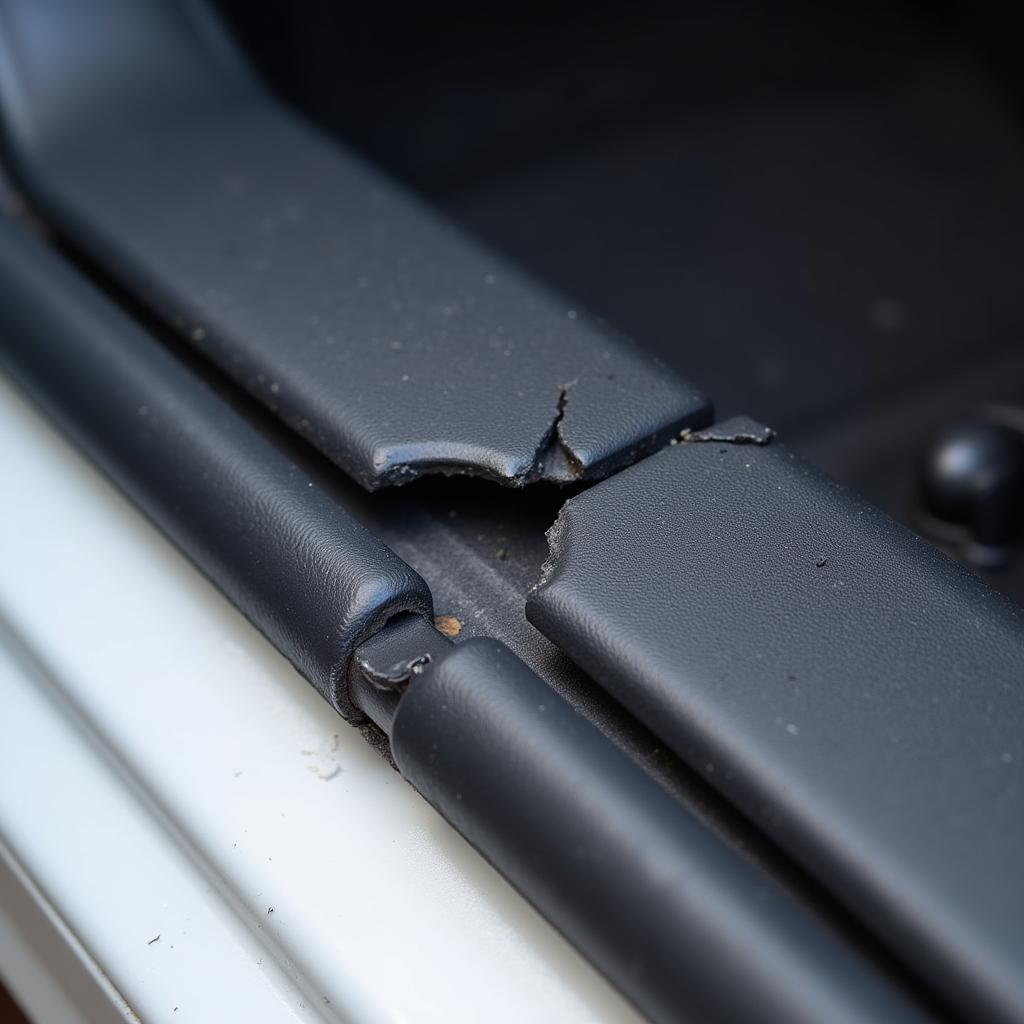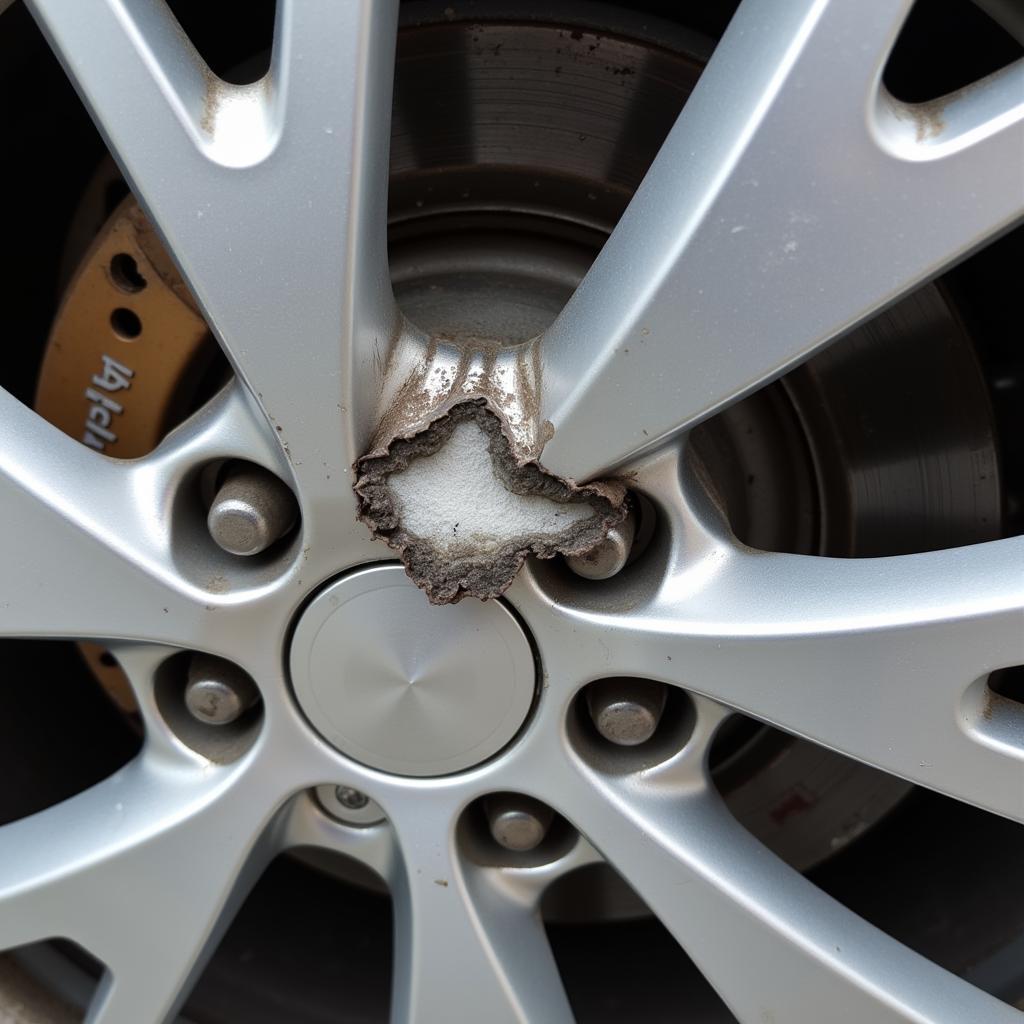A loud car door can be annoying, embarrassing, and even a sign of a more serious problem. Whether it’s a squeak, rattle, or clang, this guide will help you diagnose and fix that noisy car door. Learn how to identify the source of the noise and implement effective solutions to restore peace and quiet to your ride.
Identifying the Culprit Behind Your Loud Car Door
Before you can fix a loud car door, you need to pinpoint the source of the noise. This involves a bit of detective work, but it’s crucial for an effective repair. Is the noise a squeak, a rattle, or a thud? Does it occur when opening, closing, or while driving? Here are some common culprits:
-
Worn Door Seals: Rubber seals deteriorate over time, leading to air leaks and wind noise. They can also create friction, causing squeaks when the door is opened or closed.
-
Loose Hinges: Loose or worn hinges are a frequent source of creaking and squeaking noises, especially when the door is in motion.
-
Striker Plate Misalignment: The striker plate, the metal piece on the door frame that the latch engages with, can become misaligned, resulting in a loud clang or thud when closing the door.
-
Loose Interior Panels: Interior door panels can become loose, causing rattling or buzzing noises, especially over bumps or rough roads. how to fix car door noise
-
Worn Door Latch: A worn door latch can make it difficult to close the door properly and may produce a grinding or clicking sound.
 Worn Door Seal Causing Noise
Worn Door Seal Causing Noise
How to Fix a Squeaking Car Door
Squeaking car doors are often caused by friction between the door seals and the car body. A simple solution is lubrication. Apply silicone spray or white lithium grease to the rubber seals, hinges, and latch mechanism. This will reduce friction and eliminate the squeak.
How Do I Fix a Rattling Car Door?
Rattling noises often stem from loose components inside the door panel. To fix this, you’ll need to remove the door panel and tighten any loose screws or bolts. You can also use foam tape or sound-deadening material to secure loose wires or components and prevent them from vibrating. If your car’s security system is malfunctioning, you might hear rattling noises as well. Check our guide on how to fix security system in car for more information.
Addressing a Clanging Car Door
A loud clang when closing the door usually indicates a misaligned striker plate. You can adjust the striker plate by loosening the screws and repositioning it slightly. Sometimes, the latch itself needs adjustment.
How to Fix a Loud Car Door Due to Loose Interior Panel
If the interior panels are the source of the noise, removing the panel and adding some sound dampening material may resolve the issue. You can find this material at most auto parts stores.
“A properly lubricated door is a happy door. Regular maintenance can prevent many noise issues,” says John Davis, Automotive Engineer at Davis Automotive Solutions.
When to Seek Professional Help
While many car door noise issues can be fixed at home, some require professional attention. If you’ve tried the above solutions and the noise persists, or if you’re uncomfortable working on your car yourself, it’s best to consult a qualified mechanic. You might want to also consider checking how to fix car body paint if you notice any damage. Alternatively, if you’re experiencing a sloshing sound in your car, our guide on how do i fix sloshing sound in my car may be helpful.
Conclusion
Fixing a loud car door can significantly improve your driving experience. By identifying the source of the noise and following the steps outlined in this guide, you can often resolve the issue yourself. However, if the problem persists, don’t hesitate to contact us at AutoTipPro at +1 (641) 206-8880 or visit our office at 500 N St Mary’s St, San Antonio, TX 78205, United States. We’re always here to help! We have expert mechanics that can assist you with this issue and others like perhaps your car fix camaro exhaust.





Leave a Reply